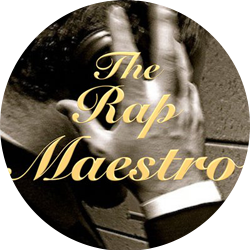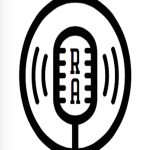This week’s group is “The Infinite”, AKA James Lanning. James is 22-years-old, and although from Maryland, he attended New York University, where he doubled major and graduated magna cum laude (Where featuring classical pianists from Berklee, double majors with honors from NYU…what is this?!?!) He just moved back to NYC. Here his song, “1, 2…Pass it”, below, and find out how he writes his rhymes below. His verse is the first one.
1. When you start writing rap, do you start with the rhythm or the text (the words themselves)?
I usually start with the rhythm I want to use. Sometimes I freestyle for 16 bars or so, but more often I do something comparable to scatting. This helps me decide which sounds and rhythms work best for the beat.
2. How do you write your rhymes?
There is no specific time I dedicate to writing. I am constantly thinking of compound rhymes in my head—while at work, on the subway, in the grocery store, wherever. It definitely looks like I’m talking to myself, but I’m always trying to come up with new material. That being said, if I’m not inspired, I don’t force it. I’ll use that time to work on polishing some of my old material. I prefer writing in a notebook, though I don’t carry one around with me. I use my hand, a napkin, or my phone to jot down any rhymes I think of when I don’t have access to my book of rhymes.
3. What musical training do you have?
I play piano. My favorite composer is Rachmaninoff, and my favorite peace to play is prelude in C sharp minor. I have played for around 8 years.
4. Who’s your favorite rapper? Who’s your favorite producer?
My favorite rapper of all time is Rakim. My favorite producer is DJ Premier.
5. When you write rhymes, do you always write them to the beat? Or do you write the rhymes, and then try to find a beat to match them?
I always write to a specific beat. I think this is a good practice ensuring that your flow does not become redundant over a series of records. Every beat gives me a different feel, which I attempt to match in the delivery and lyrics I use.
6. When you put the rhymes and beat together, is that it? Or do you back and forth between the two to make them work better together?
I write with the beat. I look at my vocals as another instrument. All of these instruments have to work together to create something that is sonically appealing. I think writing to each beat is the most effective method in meshing the emcee’s instrument with those of the instrumental.
7. In your opinion, is rap music, poetry, or both?
Rap is both poetry and music. As previously stated, the emcee is an instrument in him or her self. You can rap a cappella and still hear the rhythms and music in the words themselves. These words, their meanings, and their evocations of emotion (that is, their ability to move the emcee and the audience—move the crowd) are the poetry.


 Join the weekly RapAnalysis newsletter at
Join the weekly RapAnalysis newsletter at